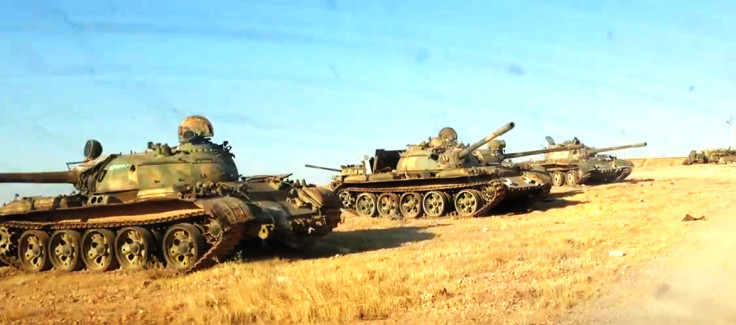Isis Crisis: Germany Sends Weapons to Iraq to Fight Radicalised German Ex-Soldiers
Germany sends weapons to Iraq to help combat Isis insurgency, after 20 German ex-soldiers joins terrorists

The German government has announced it will supply weapons to the new Iraqi government to help the country fight the threat from Isis (Islamic State) militants, including 20 former German soldiers who have joined the terrorist movement.
Germany will send thousands of arms and anti-tank weapons to Iraq to help combat the Islamic State insurgency. The move came after it was revealed that about 20 former German army soldiers have left the country to travel to Iraq and Syria to join terrorist movements, according to security forces in Berlin.
They joined an estimated 400 other German jihadists who have already travelled to the Middle East to join terrorist organisations. But former soldiers joining and added their military experience to the movement is causing the German government particular concern.
Hans-Georg Maassen – head of the Federal Office for the Protection of the Constitution (BfV), Germany's domestic intelligence agency – told the German newspaper Die Spiegel that young, radicalised, German Muslims will continue to be attracted into joining Islamic State, because of the group's violent methods, including beheading Western hostages.
"The Islamic State is, so to speak, the 'in' thing within the scene. It is much more attractive than Jabhat al-Nusrah, the al-Qaida offshoot in Syria. What attracts people is its high degree of brutality, the radicalism and the rigor."
Ultimately, Islamic State's brutality led Germany to abandon its stance of not sending weapons into war zones. After reaching an agreement on sending weapons in mid-August, the German government, over the weekend, announced it will send 16,000 assault rifles, 40 machine guns, 240 anti-tank weapons and 500 anti-tank rockets, 10,000 hand grenades, and 8,000 pistols.
Defense minister Ursula von der Leyen said the arms shipment should be enough to equip 4,000 Kurdish soldiers.
German foreign minister Frank-Walter Steinmeier acknowledged that it was possible the weapons may fall into the hands of Kurds who fight against Iraq's forces, and added that the volume of the shipment had been calibrated to minimise the chance that "arms caches could be established that might later be used in other conflicts".
Steinmeier added: "[The advance of the Islamists] isn't just a human tragedy of unimaginable proportions, but also an existential threat for the region of northern Iraq and for the Iraqi state as a whole."
© Copyright IBTimes 2025. All rights reserved.



















